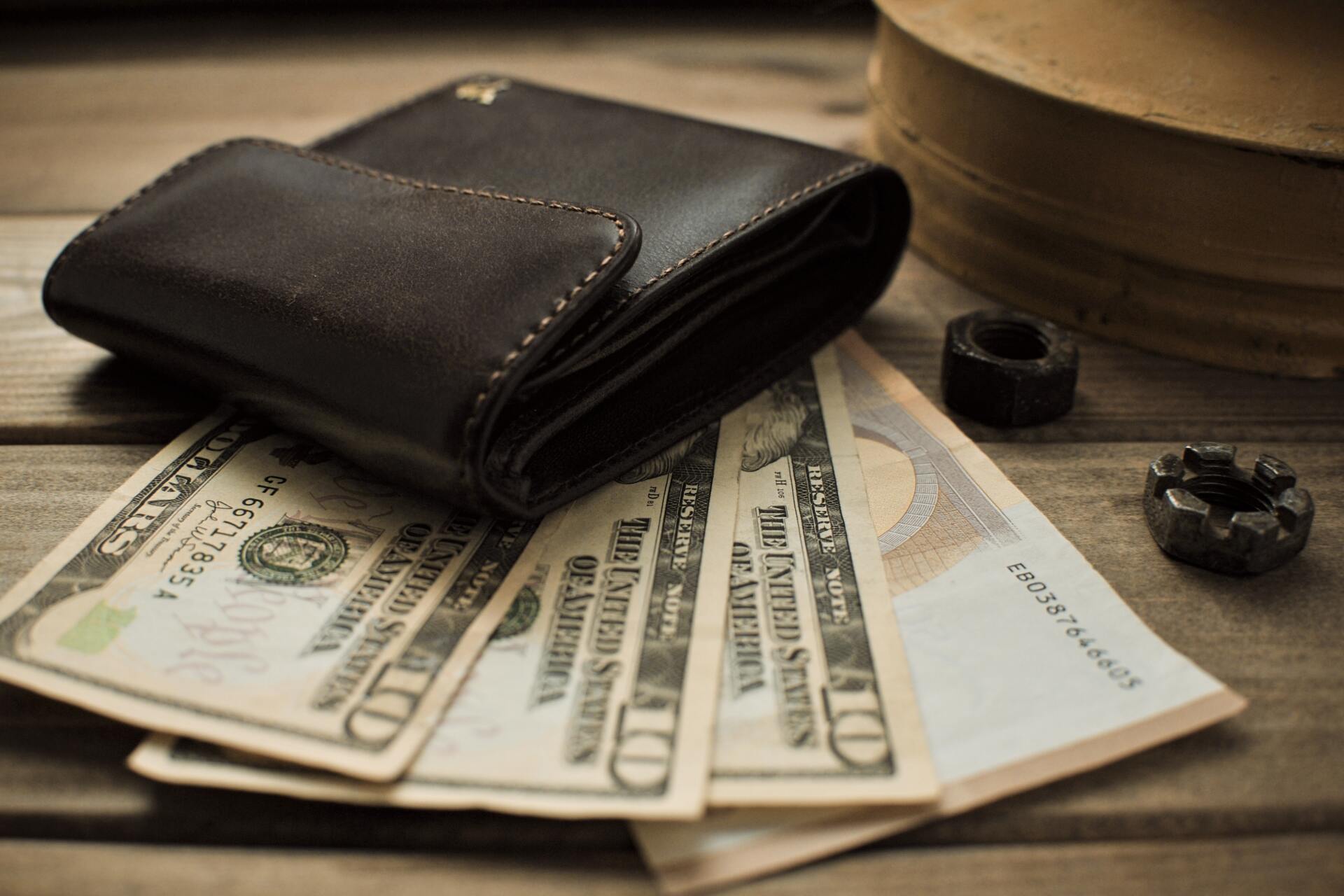Chapter 17
Everything you need to know
about crypto wallets.
You can keep your cryptocurrencies, crypto tokens and NFT’s in a crypto wallet. In this chapter, we will outline the many types of cryptocurrency wallets in order for you to determine which is best for you. In the end it depends on what you want to do with your cryptocurrency and the safety net you want to have.
What is a crypto wallet?
A device or software that allows for the transfer and storing of cryptocurrency is known as a crypto wallet. There are various kinds of cryptocurrency wallets, including software wallets, hardware wallets, and paper wallets. A crypto wallet's security is based on how the private key is kept.
Note: Cryptocurrencies never have a physical form or are kept in a single place. Rather than anything else, cryptocurrency wallets operate like ledgers. To locate the cryptocurrency tied to your address across the network, these wallets must interact with the blockchain. Even if you uninstall the wallet software, your coins are still safe on the blockchain.
Custodial wallets
Whenever we refer to "custodial wallets," we mean accounts with exchange, brokerage, or cryptocurrency trading platforms where you can trade and invest. A custodial wallet is a wallet where a third party stores your encrypted private keys. A custodial wallet is very similar in function to the principles of a bank. The major purpose of custody wallets is short-term trading, which is what makes them ideal. Custodial wallets are not the best option if you want to store your cryptocurrency for an extended period of time because exchanges are frequently targeted by hackers.
Examples of custodial wallets include: Coinbase, Kraken, Blockchain.com, Binance
Advantages:
- Convenient. Ease of use.
- Great for crypto beginners and for those with a set and forget mindset.
- Lowered user accountability for managing private keys.
- You can manage your money very quickly and at any time.
Disadvantages:
- You do not fully control your assets; not your keys, not your crypto!
- Your cryptocurrency is yours, but it is managed by another business.
- Custodial wallets are centralized.
- You may not gain access to new cryptocurrencies that are created via forks of cryptocurrencies that you already hold.
- Governments can give orders to a custodial to freeze the assets of a user for any reason they find appropriate like spreading what they believe is misinformation for example.
Custodial wallets we like:
We are not a big fan of custodians
since it doesn’t fit our vision of a free and open society. In our opinion this is not what #TakeItBack is about ;)
Non-Custodial wallets
Non-custodial wallets provide you complete control over your money and private key. This wallet kind has the benefit of making it simple to keep an eye on and regulate any activity. Any transaction needs to be approved using your private keys* in order to proceed. You can check your funds at any moment and access a non-custodial wallet without a connection to the internet.
*More info on private keys, public keys, mnemonic phrases and seed phrases to be found in chapter 7 of our free guide.
Examples of non-custodial wallets include: Trust wallet, Xdefi wallet, Math wallet, Exodus wallet, Metamask wallet, Guarda wallet
Advantages:
- Full control and access to your private keys; Be your own Bank.
- Fast transactions.
- Privacy.
- Often these wallets provide the user with access to advanced features such as staking, swapping crypto, and DeFi.
- Most wallets allow you to have multiple portfolios/accounts in the same wallet.
- Installation and setup are free.
Disadvantages:
- You are solely responsible for your private keys, so take good precautionary measures for managing them. If you lose access to your wallet, no one else can restore it.
In chapter 6 of our free guide there are a lot of tips we share in this regard. - Less user friendly.
- Presence of computer viruses that might have an impact on the funds you have stored and your confidential account information.
- Vulnerable to third-party cyberattacks, particularly if you use a public Internet connection to access your account.
Non-Custodial wallets we like: Xdefi,
Guarda Wallet,
THORwallet, Trustwallet,
Safepal
Paper Wallets
One of the safest ways to handle and store Bitcoins and other cryptocurrencies is a paper wallet. It lets you hold cryptocurrency offline. This prevents hackers from accessing the wallet, keeping your funds safe.
The user's private and public keys are encoded into QR codes that are printed on a piece of paper.
Advantages:
- Free to use
- Offline storage
Disadvantages:
- A user mistake might lead to a complete loss of funds.
- Compared to an electronic file, paper is less reliable. As the wallet ages, there is a chance that the ink will bleed, discolor, tear, fade, or disappear altogether.
- You need to take precautionary measures to protect your paper wallet from being lost or stolen
Safety tip!
Adding a BIP38 password to your paper wallet is possible. This strategy will protect the cryptocurrency from physical theft since, even if the paper wallet is stolen, the thief will need the password to transfer assets from the paper wallet. Even better, provide someone a paper wallet and offer the password separately. More on that can be found on the following link below.
You can get a Paper wallet for Bitcoin here:
https://bitcoinpaperwallet.com/
You can get a Paper wallet for Ethereum here: https://www.myetherwallet.com/
Hardware wallets
Hardware wallets are physical devices that store your cryptocurrencies private keys in cold storage. Even though they may look like common flash drives or tiny portable devices, they are protected by a PIN number that needs to be entered in order to access the data and an optional passphrase. But these wallets have additional security features in addition to the PIN number and passphrase. In order to access your cryptocurrencies, even a skilled hacker would need the seed phrase to access the hardware wallet. It would be highly impossible for the hacker to guess or crack your seed phrase as you are the only one who knows it.
Advantages:
- Offline storage
- They provide you with an additional layer of security to protect against viruses, phishing websites, and online threats.
- They can function on numerous blockchains at once.
- Ease of use. Without having to create new accounts, they can "log you in" to various dApps.
Disadvantages:
- Costs. It wouldn't make sense to spend money on a hardware wallet if you only had a few crypto assets. Prices go from around $50 to $600 on average depending on the type and design. Consider the purchase price carefully in relation to the benefits it will provide.
- Replicas. Always make sure to buy your hardware wallet from an official dealer or manufacturer. People are enticed to search for them at a discount, but when you buy them from unsolicited websites and you submit your information into a hacked wallet, you risk losing all of your assets.
Hardware Wallets we like:
-
Ellipal
-
Keepkey
-
Ngrave
- Trezor
- Ledger
What's the best crypto wallet?
Yes, this is a personal preference thing
Often a starting crypto investor starts with a custodial wallet because they don't require as much responsibility and are usually not that complicated and thus user friendly. A shift in wallet choices happens when one gets more involved in cryptocurrencies.
"Cold storage doesn't mean to put your funds in the fridge."
- Ethan
What People Say About Us

“Great guide. I always wanted to learn this!”
John Smit
“Love this free service. Can’t wait to read the next blogs about crypto insides!”
Mary Brown
“Not sure why I didn't discovered this website earlier. It’s super!”
Robert Wilson
Helping people, entrepreneurs & businesses to bridge the gap between the internet of today towards the revolutionary Web4 movement.
#TakeItBack
Support us
Support the free and independent movement!
with 5 Euro / Dollar you already help us enormously!
Bitcoin wallet:
bc1qtl0yyayrdy2p74xf52ts75tw2tl0aleehhtfjl
Monero wallet:
44gKNgXYMEfFFBR4J1ySmj161zYpMZdGZPH1D2mDnYHTPXLmv83d58CbF6uNWpDq1Vdgw1NLwkJNkR1NEmqmC5xa6ZzRehG
Ethereum wallet:
takeitback.eth







